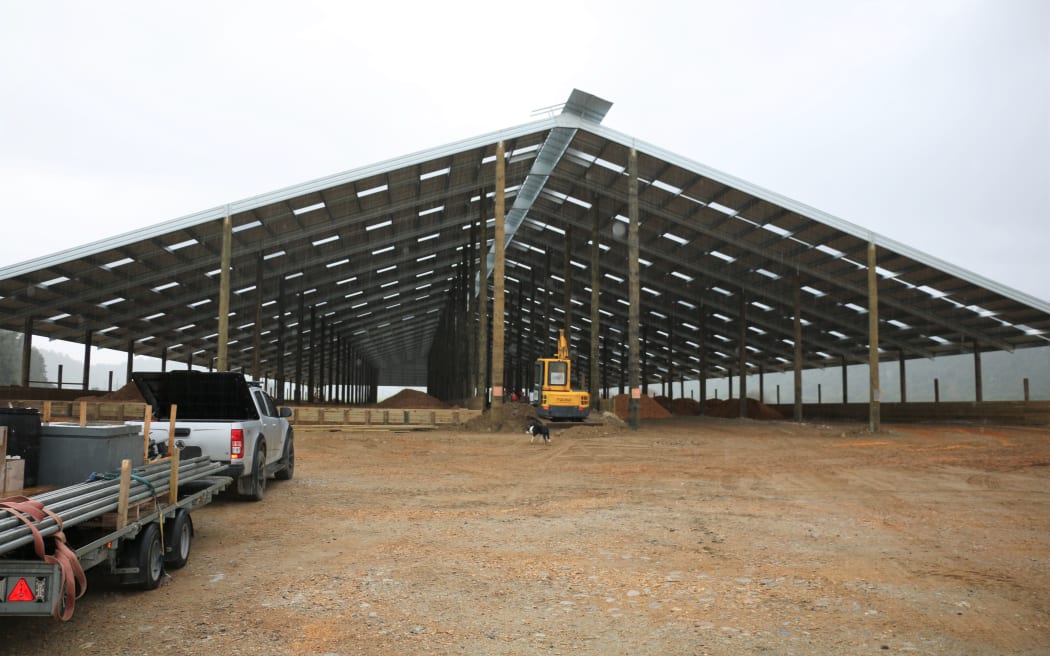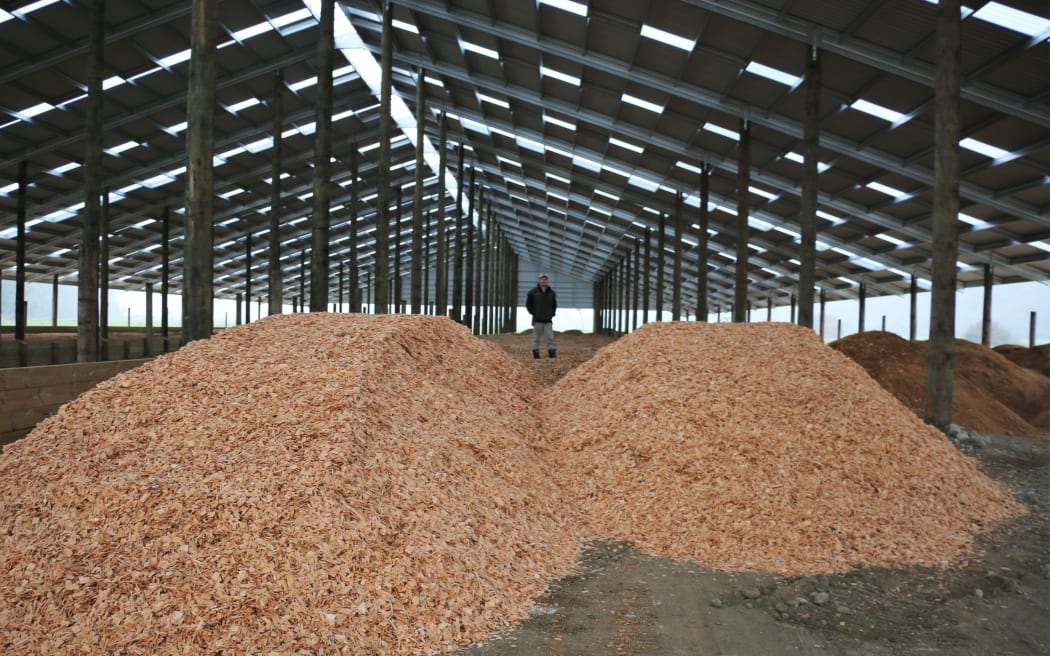PHOTO: Frano Volkman Photo: Cosmo Kerntish-Barnes
Frano Volkman’s cows will soon be snuggling up on a thick bed of woodchips and sawdust in their new 6,300m2 composting barn.
The organic fertiliser formed underneath Volkman’s herd will be spread onto the paddocks of his Little Wanganui dairy farm.
A composting barn – or composting bedded pack barn – runs on organic materials that decompose over time, reducing the need for synthetic fertiliser.
“We’ve been thinking about sheltering our cows for a few years now and this ticks most of the boxes,” says Volkman, a seventh-generation Karamean.
The new barn will provide soft bedding for up to 650 cows on an 800mm bed of woodchip and sawdust, which his father Geoff is carting into the barn.
It will act like an electric blanket for the herd, Volkman says.
“When it’s going good if you dig down a foot or so into the pack, it should be, I think, around 50 degrees.”
For optimal performance, the compost-making process requires efficient management, he says.
“We’ll till it every day, so ripping grubbers through the bedding to get the bugs and the composting working, so that takes care of the effluent the cow produce.”

Photo: Cosmo Kerntish-Barnes

Photo: Cosmo Kerntish-Barnes
Volkman’s herd will still spend time outside in winter but shelter in the barn when conditions are cold and wet.
“If we get a nice sunny week we’ll walk the cows up to the runoff, so they’ll get to stretch their legs and be out on the grass, and then when things turn for the worse we’ll bring them back, and tuck them up into the barn.”
When the compost from the cow bedding is ready, it will be removed, stored, and then spread on his pastures.
In the long term, Volkman hopes to decrease the need for increasingly expensive fertilisers on his farm.
“I’ve heard of a farmer up north who has one of these and doesn’t use synthetic fertilisers anymore, which is great. We’re not budgeting for that, but hopefully one day we’ll be at that stage, too.
“Anything that benefits the environment has to be a win.”
READ MORE VIA RNZ
MOST POPULAR
- Drug-addled Australian real estate agent’s spiral
- Claims about Jacinda Ardern’s wealth
- THE ANCIENT STONE CITY: Proof of NZ civilisation before Kupe
- Abandoned land for sale
- He sometimes struggled to pay staff, but owns a $4m holiday home
- FOR SALE: The most expensive home in New Zealand?
- Property Brokers adds another office to it’s stable
- More than 100 damaged homes looted after floods | WATCH
- AREC 2023 – Day 2
- Barfoot & Thompson Awards 2023















